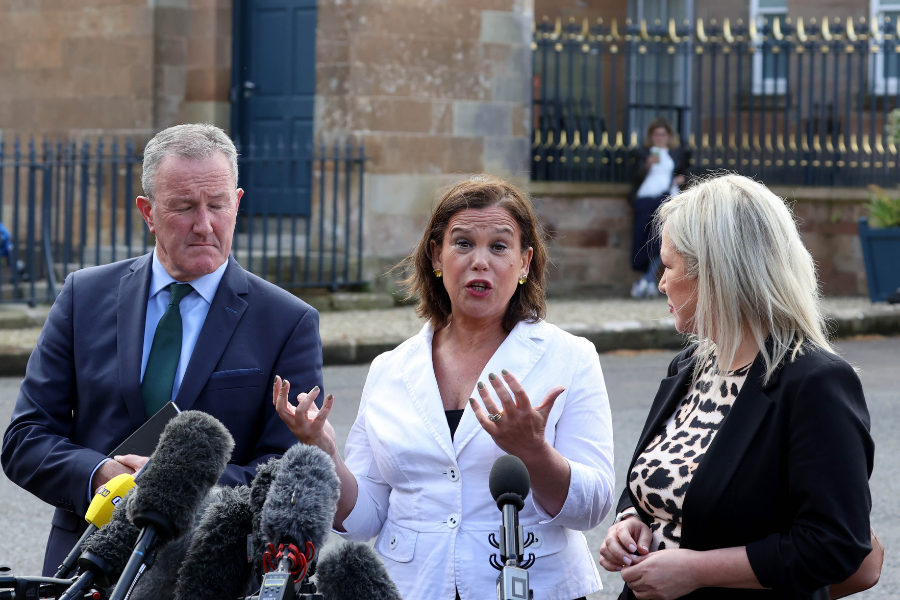
BORIS Johnson faced a “fairly tough” meeting in Northern Ireland as Sinn Fein accused the UK Government of prioritising “placating the DUP” instead of getting Stormont up and running again.
The Prime Minister met with representatives from the devolved nation’s five biggest parties at Hillsborough Castle in County Down, the official residence of the Secretary of State for Northern Ireland, currently Brandon Lewis, on Monday.
Johnson, who was booed by protesters at the gates of the castle as his cavalcade drove in, is hoping to break a stalemate between the nationalist and Unionist parties who must agree to power sharing for the Stormont executive to function.
Sinn Fein said afterwards that they had “no straight answers” from the PM, and claimed the meeting confirmed that the UK Government and DUP have co-ordinated the stalemate.
The DUP have refused to nominate a speaker, and have previously been reluctant to nominate a deputy first minister to serve alongside Sinn Fein’s Michelle O’Neill.
The Northern Ireland Protocol has become the centre of the row, with the DUP demanding action from the UK, something Sinn Fein have called “holding society to ransom”.
Meanwhile, the Alliance Party described the meeting as “robust and very frustrating”.
The Prime Minister later told journalists that legislation to rip up the protocol would be a form of "insurance" if a deal could not be reached with Brussels.
Speaking after the meeting, Sinn Fein president Mary Lou McDonald described the conversation as “fairly tough” for the PM.
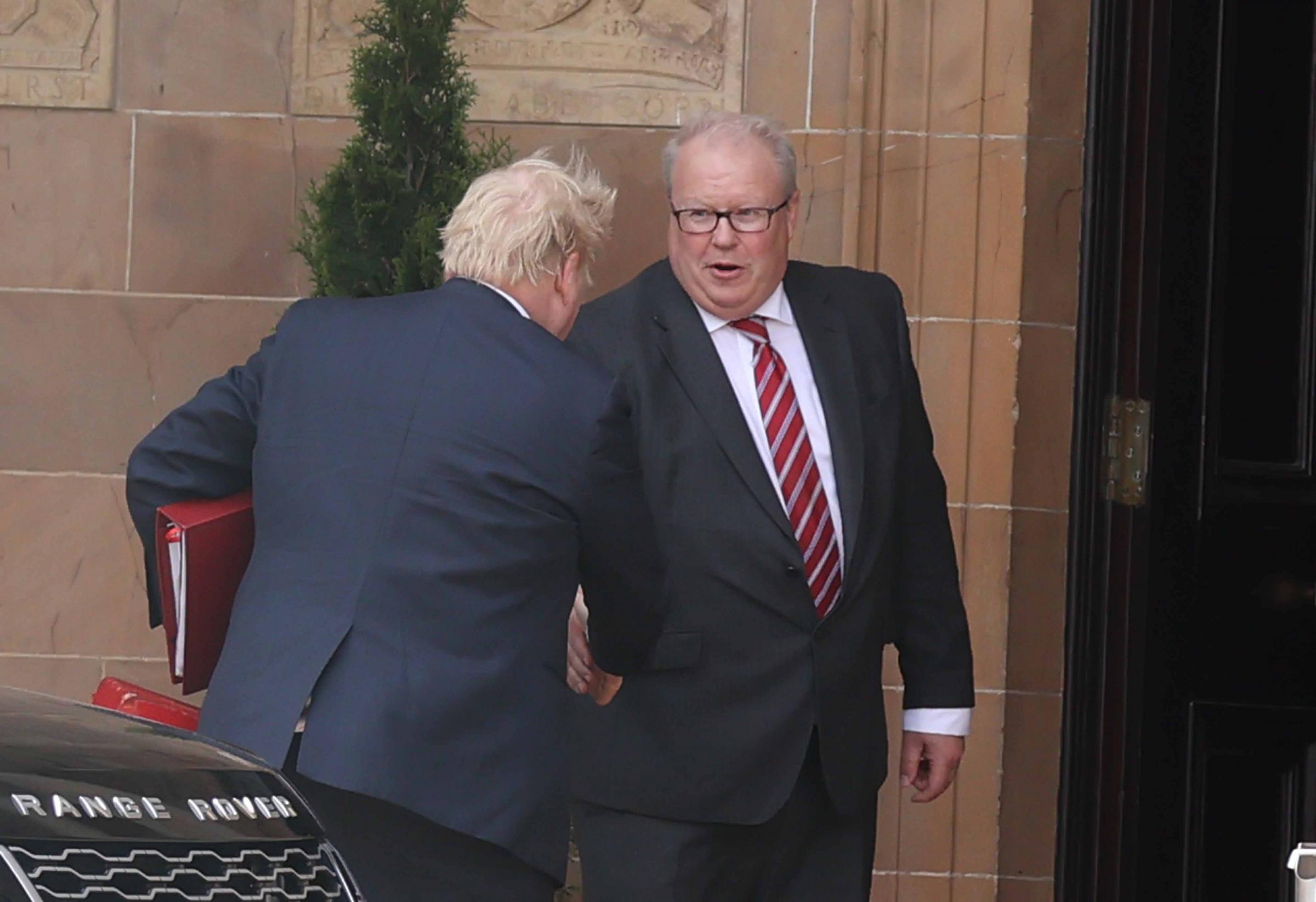
McDonald said it appears the UK Government’s priority is “placating the DUP”.
She said: “It’s very clear to us that despite all of the rhetoric from the British Government about re-establishing the Executive here in the north, that in fact their priority is placating the DUP.
“We’ve had what we would describe as a fairly tough meeting with the Prime Minister.
“We have put it to him very directly that the absolute priority is getting government working here in the north.
“People are facing incredible difficulties in the midst of a cost-of-living crisis, and it’s simply not acceptable, it’s not good enough for anybody, the DUP or the British Government, to hold society here to ransom.”
McDonald added of her conversation with Johnson: “We have said directly to him that proposed unilateral act of legislating at Westminster is wrong.
“It seems to us absolutely extraordinary that the British Government would propose to legislate to break the law. It’s an extraordinary proposal and one that would amplify the bad faith with which the Tory government has conducted itself from the beginning of the entire Brexit debacle.”
McDonald is referring to the UK Government’s plans to introduce a new law which would allow them to override parts of the protocol from Westminster.
Foreign Secretary Liz Truss is due to make a statement in the House of Commons on Tuesday which will announce the draft legislation.
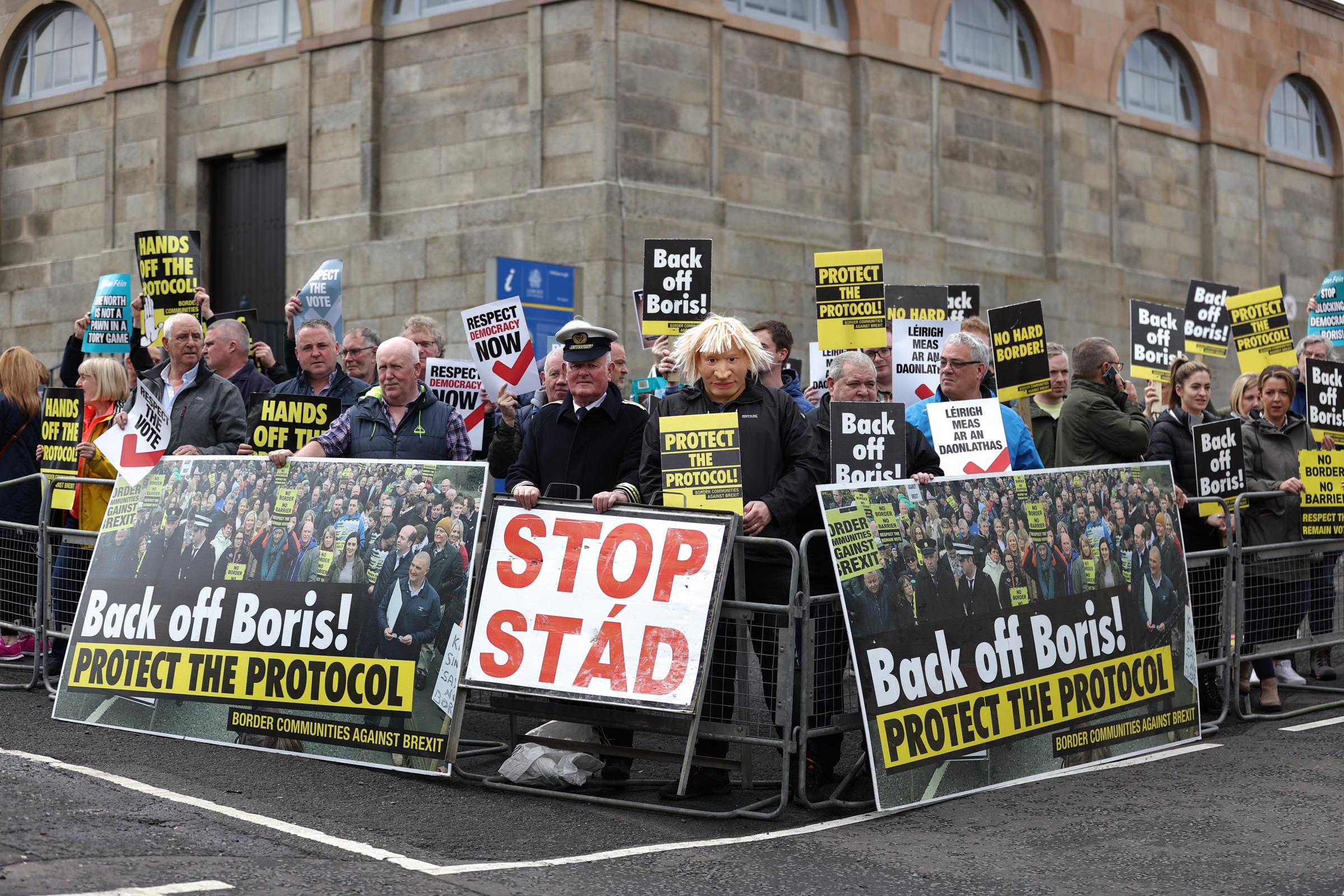
McDonald added: “We have told him very clearly that we are here to do business. The people have spoken. We have had the election, the votes have been counted, the die has been cast. Michelle O’Neill is the first minister in waiting and we want to get on with things and get back to business.
“I’m sorry to report that we’ve had no straight answers really from the British Prime Minister except a confirmation of what we already knew, which is that in fact this impasse is entirely co ordinated between themselves and the DUP, and if the DUP are acting shamefully in holding back government, well then the British Government is behaving even more shamefully.”
Sir Jeffrey Donaldson, DUP leader, said that he would judge the UK’s plan by it’s actions, not words, adding that he did not have any details of the proposals.
On the return of power sharing at Stormont, he said: "We cannot have power sharing unless there is a consensus. That consensus doesn't exist."
Donaldson also said that he “set out in very clear terms” to Johnson what is needed from the British Government in relation to the protocol.
Previously the DUP leader set out seven tests that the party want the UK to stick to in future negotiations with the EU.
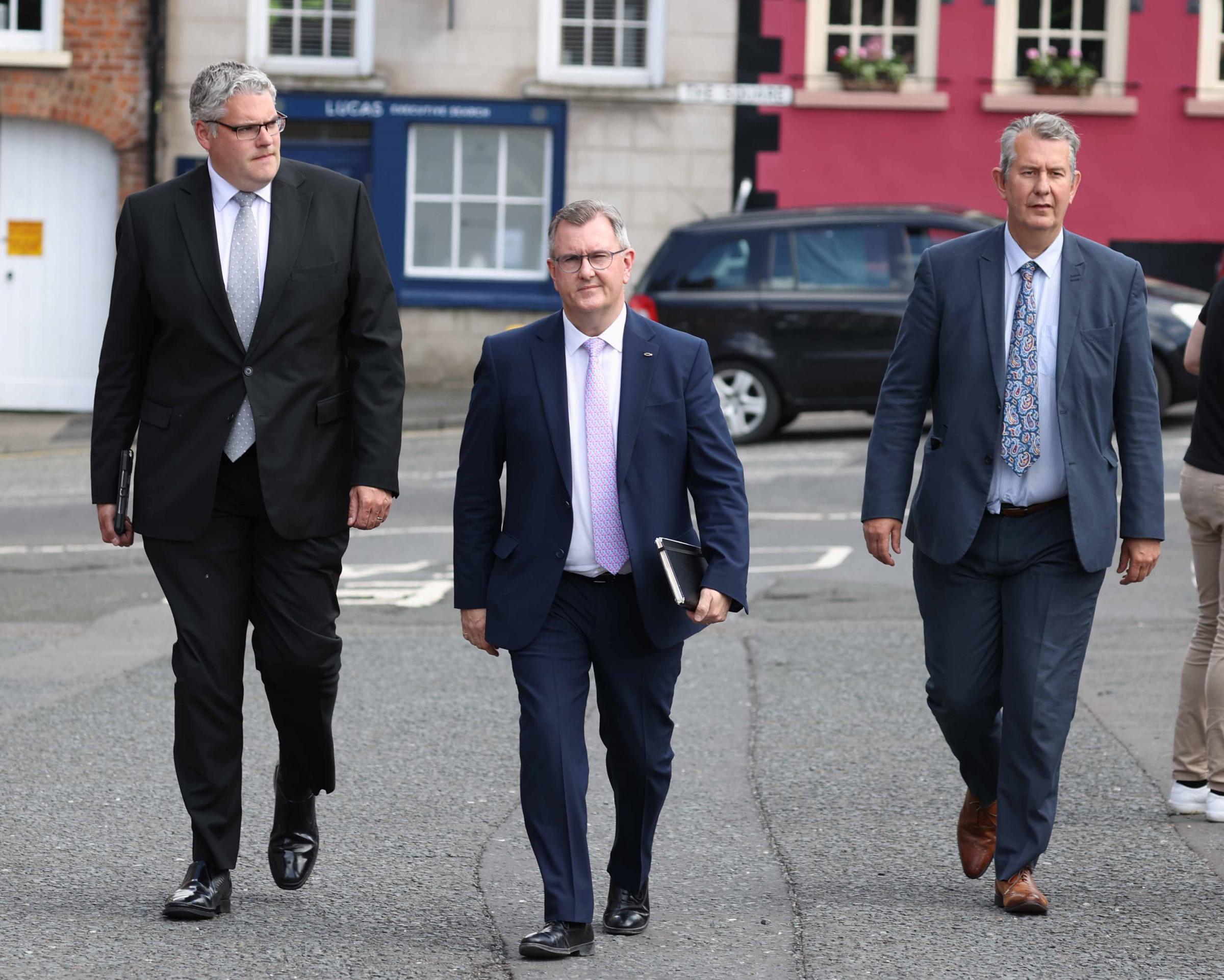
In response to questions on whether Johnson was “on the DUP’s side”, Donaldson said that the assertion was “for the fairies”, and that the PM was meeting with Stormont leaders because it is “his job to protect Northern Ireland”.
He added: “Sinn Fein need to stop this puerile nonsense that they’ve been engaging in of late, get serious and let’s deal with serious issues, instead of this silly approach that they take of attacking everybody who doesn’t agree with them.
“The Prime Minister has a duty to resolve these issues, that is why he is here.”
Deputy Alliance Party leader Stephen Farry said: “We were giving him a very clear warning that if he plays fast and loose with the Protocol and the indeed Good Friday Agreement, then he is going to be adding more and more instability to Northern Ireland.
“On the one hand, he is coming here with a certain set of stated outcomes, but all his actions belie what he is notionally trying to achieve.”
The Ulster Unionist Party (UUP) said that if the UK set out how they will solve the protocol problems on Tuesday, Stormont should move forward and nominate a speaker and "start doing the work".
Leader Doug Beattie said: “And if we do not get back into government, then we need to identify who is blocking it and we need to bypass them.”
SDLP leader Colum Eastwood had a similarly strong warning.
He said: “If the British Government tomorrow signal their intent to break international law by legislating to rip up the protocol at Westminster, he (Mr Johnson) will not have the support of the vast majority of people in Northern Ireland."
Speaking after the meeting, Johnson told journalists that the UK does not want to “scrap” the protocol, but believes it can be “fixed”.
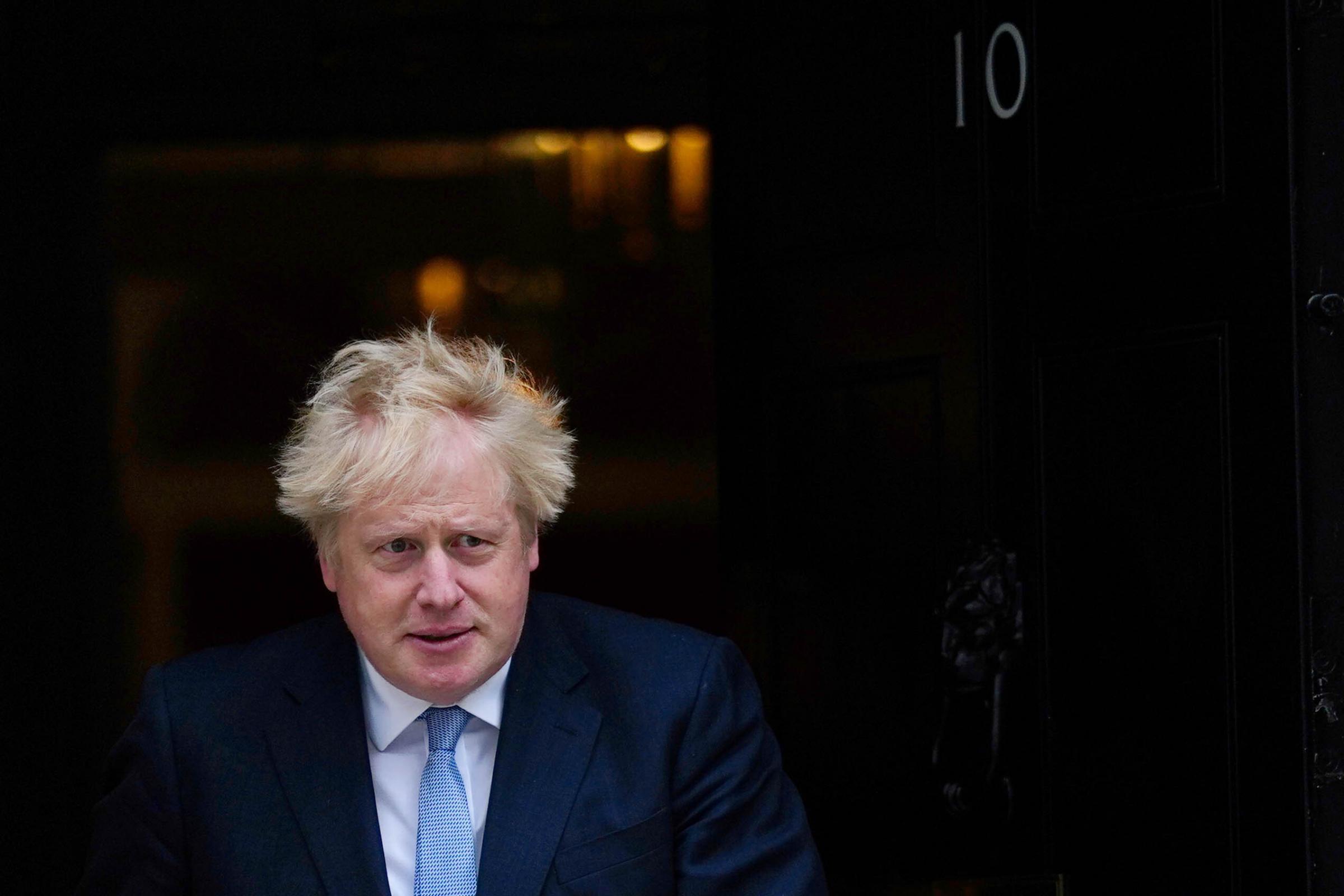
“We don’t want to scrap it. But we think it can be fixed.
“And actually five of the five parties I talked to today also think it needs reform.”
Put to him that it might not be the wisest move to threaten to tear up the agreement during a cost-of-living crisis, given the potential implications for trade, he said: “What we’re doing is sticking up for the Belfast (Good Friday) Agreement, and what we’re doing is trying to protect and preserve the government of Northern Ireland.
“And yes, you’re right, there’s a cost-of-living issue, but that’s certainly not being helped by extra barriers to trade, extra burdens on business that are being caused by the protocol.
Johnson also claimed that all five Stormont parties had issues with the protocol, and in some form want to see it changed or improved.
He added: “The question is how do you do that? We would love this to be done in a consensual way with our friends and partners, ironing out the problems, stopping some of these barriers east-west.
“But to get that done, to have the insurance, we need to proceed with a legislative solution as well.”







